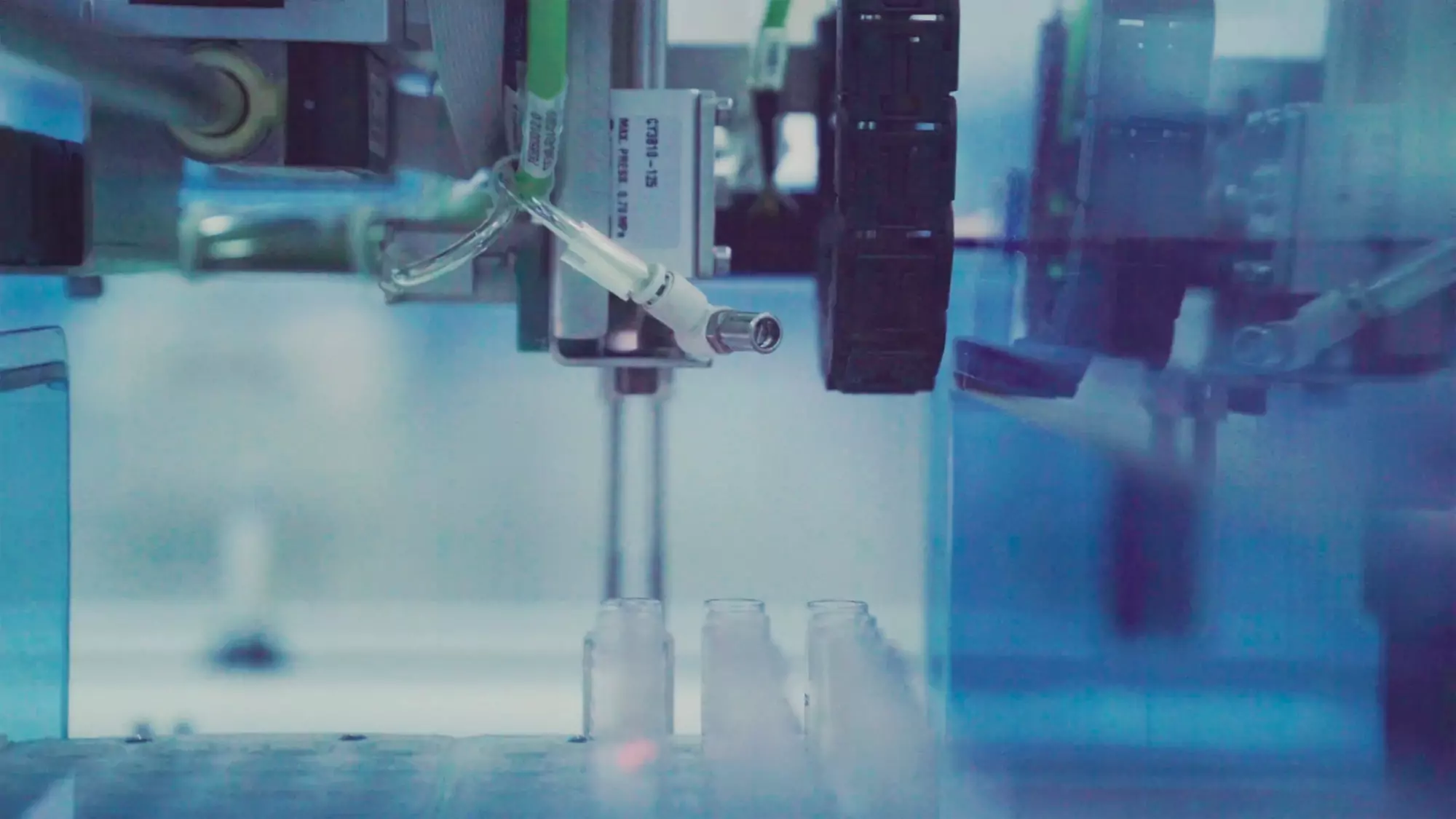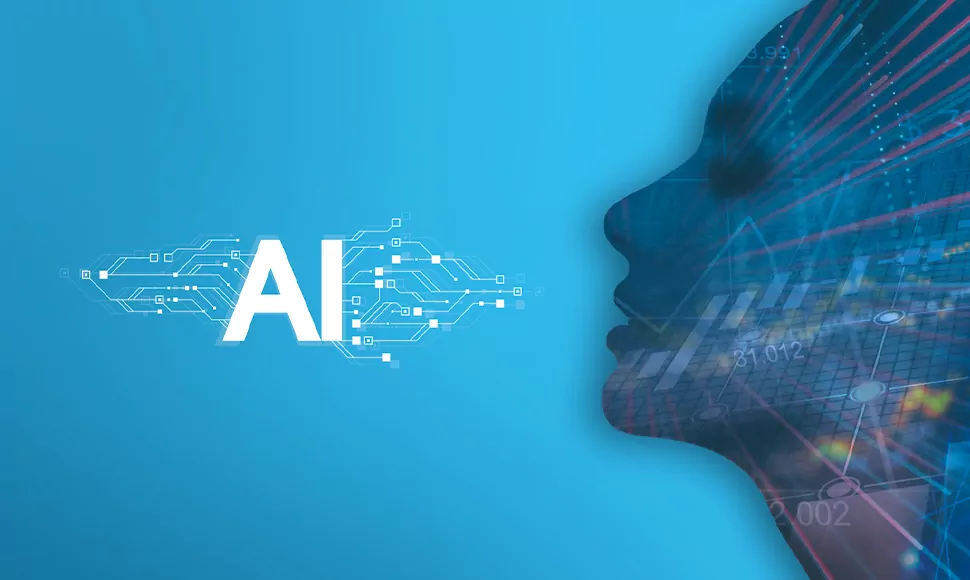The fundamental feature of AI is its ability to mimic human thinking processes and skills. It raises the question: why can AI bring about an unprecedented transformation in businesses? What is it about AI algorithms that gives them the true power to revolutionize industries and reshape the entire corporate landscape? In today’s article, we will explore these questions.
How many companies use AI?
While AI may seem highly advanced, demanding top-tier technologies and expertise, the reality is quite the opposite. I dare to assert that nearly every modern company incorporates AI to some extent. Why?
The availability of free AI-based tools is a driving force behind this widespread adoption. Take, for instance, the ubiquitous Google search engine. When utilized in business, it becomes evident that AI plays a central role in swiftly sifting through vast data volumes to deliver tailored results.
A similar AI influence is witnessed in the world of e-commerce. Have you ever placed online orders for your company only to be met with personalized product recommendations? These suggestions are yet another manifestation of AI in action.
However, it’s essential to acknowledge that while these examples are indeed emblematic of AI’s integration into business operations, their impact remains limited. You can use it to a higher degree to generate substantial profits for your company.
When discussing artificial intelligence in business, we certainly don’t mean passive usage, as demonstrated in the examples above. Instead, we refer to its active integration into business operations or products.
It’s evident that AI is more than just a passing trend; it’s the future of business. Embracing it is no longer a matter of choice but a necessity. The question is simple: will you initiate its incorporation into your operations, or will your competitors beat you to it, potentially leaving you struggling to catch up?
Let’s provide you with some specific figures
Using AI in business, understood in a more sophisticated way, differs across companies, industries, and countries. Larger enterprises are significantly more prone to having already integrated AI into their business operations. In contrast, smaller businesses are more inclined to be in the early stages of exploring AI or not engaging with it at all. Significant disparities are also apparent within industries, with companies in the automotive and financial services sectors showing a stronger inclination to expedite the implementation of AI.
According to IBM Global AI Adoption Index 2022, 35% of companies stated that they have implemented AI in their business, and 42% reported their active exploration of AI technology. Chinese and Indian firms are at the forefront, as nearly 60% utilize AI. This rate of adoption is markedly higher than that observed in other markets, such as South Korea (22%), Australia (24%), the US (25%), and the UK (26%).

The examples of artificial intelligence in business
According to data provided by Statista, in the US in 2023, the AI adoption rate in the workplace is highest in marketing and advertising (37%), technology (35%), and consulting (30%). Let’s delve into the particular use cases from these areas, but not limited to. How do businesses use artificial intelligence?
Personalized marketing
AI algorithms analyze customer data and perform sentiment analysis to understand the clients better and create targeted marketing campaigns. It results in more effective marketing, higher conversion rates, and a better return on investment.
Enhanced customer experience
In today’s competitive market, providing exceptional customer experiences is non-negotiable. AI algorithms can analyze customer behavior, enabling you to personalize your products and services. The technology is also applied in recommender systems, chatbots, and voice assistants, offering 24/7 support.
Data-driven decision making
AI algorithms can process vast amounts of data in a much shorter time than humans. They can identify trends, predict market changes, and help you optimize your business strategies for maximum efficiency.
Risk management
AI systems can analyze information to detect potential risks and threats to your business, whether they are cybersecurity threats, financial risks, or market fluctuations. By identifying unusual patterns, they can also flag potential fraud. Similarly, AI is employed in data security. Early detection allows you to mitigate or avoid these risks proactively.
Operational efficiency
AI-powered automation can streamline various business processes, reducing operational costs and minimizing errors. It means tasks like documentation management, inventory and demand forecasting, quality control, and many more.
Predictive maintenance
For businesses that rely on equipment and machinery, AI can be a game-changer. AI algorithms can predict when equipment will likely fail, allowing you to schedule maintenance before a breakdown occurs. This approach not only reduces downtime but also extends the lifespan of your assets.
Quality control
AI-powered systems can be trained to detect defects and anomalies in manufacturing processes, ensuring product quality and minimizing waste. For instance, AI-driven systems equipped with cameras can identify minute flaws in automobile components, allowing for immediate adjustments and reducing the production of defective parts.
Supply chain optimization
AI helps optimize the supply chain by analyzing data to make inventory, production, and shipping decisions. It can reduce costs, minimize delays, and improve overall efficiency.
Sustainability and social responsibility
At the same time, companies are also applying AI to tackle challenges that have significant social and environmental implications. It includes addressing skill and labor shortages, democratizing their products and services, and mitigating sustainability-related issues like reducing environmental footprint.
AI impact on business: The benefits
According to IBM’s report cited earlier, approximately 50% of organizations are experiencing the benefits of AI to automate IT, business, or network processes. These gains encompass:
- cost savings (54%)
- enhancements in IT or network performance (53%)
- improved customer experiences (48%).
As you can see, cost-effectiveness is currently the primary driving force behind adopting AI in business. It comes as no surprise, especially in the challenging times we are facing, where watching every penny and cutting expenses, mainly through task automation, have taken top priority.
A wrap-up
The application of artificial intelligence in business is delivering more and more benefits and improvements to organizations globally. It is primarily achievable through advanced automation, simplified usage, and a broadening range of well-established applications.
In today’s fast-paced business landscape, staying ahead of the curve is crucial for success. As technology evolves, artificial intelligence has emerged as a game-changer, offering countless opportunities for businesses to thrive and transform.
We are here to guide you in unlocking the transformative power of AI and leveraging it for the benefit of your business. Don’t hesitate to get in touch with us today to embark on this exciting journey! Contact us at info@neurosys.com.





